- Home
- Paul Finch
Medi-Evil 1 Page 2
Medi-Evil 1 Read online
Page 2
“Frightened of what?” Ljot asked.
Ulfketyl gave them another of his odd grins. “Didn’t I tell you? There are troubles here at Snorrifjord.”
“What troubles?”
But Ulfketyl had started down the gangplank. “You must speak to your kinsman. I have business with the dock-master.”
The brothers gazed at the waiting crowd, most still haggling for passage.
“Someone always seems to be running from something,” Radnar finally said.
They gathered their weapons and shields, and went ashore, following a well-trodden track across the ice until they reached the beach itself. There, they saw huts built from driftwood, alongside boat-sheds, smithies and animal pens. All of these lay under a heavy blanket of snow. They took an uphill track, soft and heavily rutted but marked out by a row of posts on the tops of which flames flickered in jars filled with tallow-fat, and at last came to the midden of their uncle.
It was well-placed: there was much open ground around it – no doubt providing meadow and lowland pasture in the warmer months – but high fells rose directly behind it, affording protection from the northern wind. The stead was encircled by a tall palisade, the sharpened stakes of which were again surmounted with guttering torches. The brothers were stopped and spoken to by the gate-keeper, but were admitted on producing their identification – an iron ring bearing the family crest (a cat’s eye cut on a lump of greenish crystal). Inside, there was another clutter of pens and outbuildings, with only the tightest alleyways between them.
In the very centre stood Bjarkalstead, their uncle’s long-hall.
It was less ornately carved than many grand houses they had seen, but it still looked impressive. Its roof of sod was steeply pitched, the eaves coming down virtually to the ground, and its few windows – currently closed – were tall and narrow so that they could serve as arrow-slits. Despite the chill, thralls and servants were bustling around in response to the newly-arrived longship.
Ljot and Radnar were again stopped before entering the hall itself. Two thegns wearing dark scowls and curved daggers at their belts, demanded to know who they were and what their business was. Once more, Ljot presented their credentials, and they were grudgingly allowed through.
Compared to its bleak exterior, the interior of the hall more befitted their uncle’s warlike reputation. Variously-coloured shields – solid, circular pieces of linden-wood, bound and bossed with iron – were slung along the overhead beams. The inner-walls, constructed from the heaviest pine-logs, were clad with flax, animal hide and woven cloth, and decked with broadswords and battle-axes. The central area was floor-boarded but carpeted with straw, and ran the entire length of the building, though it was narrowed by two inner-rows of pillars: tree-trunks cut square, and carved with runes and interlacing symbols. Tables and mead-benches had been cleared to one side.
At the hall’s farthest end, a lone figure sat on a great, throne-like chair.
Ljot and Radnar advanced slowly. They were aware of their uncle’s drengir – his hearth-troop – watching from the shadows beyond the pillars. But the only sound was the clink of their own mail, and a hiss of kindling in the hearth; its wood was obviously dry, for only thin trails of smoke rose up to the stone flue in the apex of the roof.
They circled this one to either side, and, more warily than they’d planned, approached their uncle, Sigfurth Guthfrithsson, lord and jarl of this frozen outpost. He was in late middle-age but huge of bulk, and, though seated in the chair of justice, bowed over a chess-board, the bluestone pieces of which he moved from square to square as though engaged in a game against himself. Nowhere on his person was there a glint of gold or bronze, neither ring nor brooch, and this surprised Ljot and Radnar – they remembered their uncle as a wealthy, ostentatious man. Instead, he wore a heavy fleece fastened at the shoulder with a hook, and below that a tunic and breeches of black linen. His thick beard and long hair had run to grey, which was near enough the same colour as his face. He was haggard, careworn, his brow deeply furrowed.
“Who are you?” he asked, not looking at them.
“Don’t you know, uncle?” Ljot asked.
Sigfurth smiled to himself. “Two more wastrels in need of charity.”
Ljot glanced around. The faces of Sigfurth’s retainers were sullen.
“This isn’t the warmest welcome I’ve ever received,” Radnar remarked.
When Sigfurth glanced up, his eyes were cold as hoarfrost. “And what did you expect? Gift-giving? A feast in your honour? As you can see, we’re not in the festive mood at Bjarkalstead.”
“You seem to be in mourning,” Ljot said.
Sigfurth pursed his lips with scorn. “Young Ljot is as perceptive as he ever was.”
“You do recognise us then?” Radnar said.
Their uncle rose ponderously to his feet. “These old eyes aren’t quite the dried prunes you two would seem to think.”
Two girls now approached. By their quiet, furtive movements and the leather bands around their necks, they were thralls. They wore simple garments of coarse fabric, cinched at the waist with rope. They quickly gathered the empty cups from the throne’s side-table. Both were beautiful, though in different ways. The younger of the two had a slender, girlish frame, and long tresses of golden hair. The other was voluptuous and red-headed, though her locks had been cut square at the shoulder. Radnar gave them only a cursory glance; it was common practice to keep the more comely slave-women for the household itself, so they might double as bed-warmers for the hearth-men. But Ljot was more interested, in particular in the younger woman. Besides her slave-collar, a cloth pendant hung around her neck. It was cut into the shape of a fish. As she cleared the table, she glanced up and caught his eye. A flush came to her cheek, and, nervously, she hurried about her business.
“Does the sight of slaves outrage your Christian sensibilities?” Sigfurth wondered.
“You heard that we’d converted?” Radnar said.
“As the eyes work, so do the ears. Your father would’ve been disappointed.”
“Are you?” Ljot asked.
Sigfurth chuckled; a hard, humourless sound. “Nephew … in case you haven’t noticed, I have troubles of my own.”
“Maybe we can help?” Radnar said.
Sigfurth looked them over, seeing perhaps for the first time that they wore heavy ring-coats and broadswords, that they carried gashed and dented helms, that shields and battle-axes were strapped to their backs.
“Maybe you can,” he said. “But I doubt it.” He stepped away from his chair and took hold of a rush-light. “Come with me anyway. Now that you’re here, there is something you ought to see.”
He led them outside, where snow was again falling; the narrow ways between the sheds were already shin-deep. They tramped through it, and came to an outbuilding on the northern edge of the compound. Sigfurth forced the door and went in. Ljot and Radnar followed. Inside, their uncle stood back, the firelight writhing on his face.
“See the curse that lies upon us,” he said.
At first, they made no sense of it. The shed had been emptied of supplies, and instead, cadavers lay on its floor and shelves. They had been arranged respectfully; some were even swathed in funeral-bands, though others were naked or clad in fragments of clothing. There were twenty-five in total, and they comprised men, women and children. All were frozen stiff, so it was difficult to judge how long they had been here, but many bore visible wounds and, in some cases, those wounds looked relatively fresh. One hefty fellow’s throat had been torn out, gullet and all. Another – from the calluses and dirty, ragged nails on his hands, he was a thrall – peered upwards in abject horror, his mouth locked in a silent shriek; by the way his head angled to his shoulder, he’d died from a broken neck. One of the women had claw-marks on her breasts. Another had been stabbed in the heart.
Ljot and Radnar had seen death in many forms, but there was something especially hideous about this improvised charnel-house: perhaps the terri
ble expressions on the faces of its occupants; perhaps the way they had been stacked like so many lengths of timber; perhaps the aura of abandonment that hung over them – as though their relatives were no longer interested, as though they would lie here uncared for, unavenged and eventually forgotten altogether.
“Were you attacked, uncle?” Radnar asked. “I saw no preparations for war.”
“There are no preparations for war because there is no war,” Sigfurth replied. He regarded the dead of his household with pale, glassy eyes. “But we have been attacked – night after night, though as Morketiden is now upon us, and night runs into day, the terror will know no end. Any one of us could fall foul of it.”
The brothers glanced at each other. Never in their lives had they imagined their uncle – a famed raider and pillager in his youth, and now a great landowner – being as frightened of anything as he plainly was here.
“Sigfurth, who is doing this?” Radnar asked.
“If I knew … a man like me, do you think I’d just be sitting doing nothing? Like a goose ready for plucking!”
Sigfurth crashed out of the shed, taking the rush-lamp with him.
Outside, thick snow was still falling. The only light came from the torches on the palisade, though it didn’t penetrate far. Sigfurth trudged towards the hall, vanishing inside it without waiting for his nephews.
“By all that’s holy, I’ve never seen a man of name so terrified,” Ljot said.
Radnar shrugged. “He’s old.”
“Not so old. What do you think is happening here?”
Radnar shook his head.
There came a shouting from the direction of the gates. They plodded over, and by the weak torchlight saw the gate-keeper standing on his ladder and issuing gruff orders. Servants and thralls stood back to admit a small party of men swaddled in furs from head to foot, and armed with spears. They carried two long poles between them, from either one of which hung a caribou. The man at the front was taller than the rest, and strode with the bearing of a leader. When he saw Radnar and Ljot, he halted. A woollen scarf covered the lower half of his face, but the torchlight revealed piercing blue eyes, which Ljot felt he recognised. When the man pulled down his scarf, all suspicions were confirmed. The fellow might now sport a thick blonde beard and moustache, but the old v-shaped scar on his left cheek was still in evidence from where, back in Norway, a wolf-cub had once bitten him; in his childhood folly, he’d sought to steal the creature from its mother’s lair.
“Assbjorn,” Ljot said.
“Do I know you, stranger?”
“We’re the Sigurdssons. Radnar … Ljot …”
The man smiled – at least, he tried to smile. But like everyone else at Bjarkalstead, the weight of woe was evident. “Cousins, forgive me. I was a lad when I last saw you.”
He strode on, the hunting-party following as he wound through the outbuildings towards the hall. Ljot and Radnar caught up with him indoors, beside the great hearth, which had been newly stacked with logs. Assbjorn watched the flames as if seeing ghosts there. It was several moments before he began to strip off his furs.
“Has father spoken to you?” he asked.
“He hasn’t said a great deal that we understood,” Radnar replied.
Assbjorn nodded, as if this was the way of things.
Ljot glanced through a side-door towards the kitchens, where food-thralls were already hanging and skinning the two reindeer. “The hunt was good by the looks of it.”
Assbjorn shrugged. “This is a land of plenty. We have everything we could want. The ground is fertile … in summer it’s rich with crops and fruit, there’s abundant game and fish. And, of course, there’s little competition. Particularly here at Bjarkalstead.”
He shook his head, perhaps regretting that they were so far north of the other Greenland settlements.
“Father insisted on sailing northwards from Brattahlid,” he added. “He wouldn’t stay there. It’s almost entirely Christian now, thanks to Eric the Red’s blasted wife. Besides … he said he wanted to carve out his own kingdom. That had been his dream since he was a crew-man in the dragon-ship of Sihtric, and sailed against the Irish under Brian Boruma. He was tired of other men’s politics, he said …”
“Assbjorn!” Ljot cut in. “What is happening here?”
Assbjorn gazed at them bleakly. “We don’t know. The murdered are simply found.”
“Found?” Radnar said.
“In the mornings.” Assbjorn rubbed his tired face. “At least … during the summer months, when we first arrived here, it was in the mornings. Now it’s any time, day or night. Whenever this thing feels fit to attack.”
“Thing?”
“No-one knows what it is. An animal perhaps.”
“There were knife-wounds on at least one of the victims,” Radnar said. “That wasn’t the work of an animal.”
Again Assbjorn shrugged. “We don’t know what … or who it is.”
“Then hunt it or him down! Use dogs!”
“We’ve tried. We’ve searched the woods and fells, but found no tracks. We’ve posted extra sentries, but to no avail. It comes and goes as it wishes. In any case, we’re now badly under-strength. Those in the woodshed … that’s only those who’ve died since Morketiden began. There were at least twenty more before the darkness fell, many of them hearth-men. As a result, servants and free-folk have fled. No guests come now … until you.”
“Can’t you summon help from your neighbours?” Radnar asked. “Form an army?”
“We have no neighbours. The nearest stead is a hundred miles to the south. As I say, father wanted everything for himself.”
“Like Adam,” Ljot said, thinking aloud. “He had all of Eden, yet wanted more. The more that he finally got was the serpent.”
“We shouldn’t waste energy trying to find lessons in this,” Radnar replied. “We should be finding the killer.”
Assbjorn almost laughed. “May the gods smile on you if you try, Radnar. One of those it slew was Ubbi Anlafsson.”
The two brothers were stunned.
“Ubbi?” Radnar finally whispered.
“He joined father’s crew four years ago. The Danes were hunting him. Apparently, he wrought great slaughter on Canute’s men at the Holy River.”
“He was a legend,” Ljot recalled.
“Strong as a bear,” Assbjorn added. “I saw it for myself. In a wrestling match, no man could throw him. He could fell a pine with a single blow of his axe. Father made him the marshal of the house, yet five weeks ago he too fell prey to this thing.”
“What happened to him?” Radnar asked.
“He was taken from the palisade. In the blink of an eye, it seemed. He took a watch on his own. Said he needed no other.” Assbjorn paused, his mouth dried. “We found him the next morning, bound to a tree and burned. Faggots had been piled around his feet.”
Ljot gripped Radnar’s arm. “Like his father, Anlaf! Wasn’t he captured by the Slaviks and burned in a wicker-cage?”
“There are no Slaviks in Greenland, Ljot,” Assbjorn said.
“Nevertheless there’s someone,” Radnar replied, outraged that a warrior like Ubbi Anlafsson should die so undignified a death. “And it’s more than just a few. For Ubbi to be bound and burned? How many would it take to manage that?”
“Many, one would have thought.” Assbjorn stared into the flames again. “And that’s another part of the mystery. We had heavy snow the day before it happened, the first snowfall of the autumn. Yet when we found him, there were no tracks anywhere near Ubbi’s corpse. Only his own.”
3
That night, an attempt was made to feast.
The thralls laid fresh straw down, chased the kitchen-dogs out, and arranged the tables and benches along the length of the hall. Sigfurth’s high-table they set cross-wise in front of his throne. To Radnar and Ljot’s surprise, their uncle bade them sit beside him in the fashion of honoured guests. Assbjorn sat at the other side of his father, while a space w
as left in honour of Sigfurth’s wife, Scylda, who had departed this world several years ago, a victim of the sweating-sickness. Radnar and Ljot remembered their aunt as a tall, statuesque, flaxen-haired woman, imperious of nature and forthright in her views despite the traditional place of females, which was to be silent and unobtrusive. Though it had never been her way to greet her nephews with fulsome displays of love, she’d been affectionate when they were youngsters, and they knew they would miss her.
Ulfketyl’s crew had elected not to stay, but the rest of the household was in full attendance. Sigfurth’s hearth-men filled up the tables closest, while those free-folk and craftsmen who lived and worked at the stead – the smith, the boatwright, the tanner and saddler, the master of the stables and his grooms, the brewer, the scribe, the gold-worker, the clogger, and various others – took up less privileged positions. Ale and mead flowed, and after Sigfurth’s customary toasts to Odin, Thor and the speedy arrival of spring, trays of smoking victuals were brought forth: barley-cakes and bowls of fish-stew, followed by a pottage of mashed carrots and turnips soaked with melted butter, and then platters groaning with sausage and bacon and slabs of roasted venison swimming in thick, sweet gravy.
It was a feast for a king, but the atmosphere was grim. Rush-lamps had been set on the shelves, but the fire in the hearth burned with a fierce red glow, which cast a feverish luminescence. There was little conversation at first, much less the normal laughter and boasting, though at length, as the drink poured, tongues were loosened and Sigfurth summoned Hodr, his blind bard, ordering him to sing. Hodr did as he was bidden, regaling the company first with the saga of Odin and the hydromel, then the tale of Sigmund and Sigurd, all the time striking honeyed chords on his harp. As the final scraps of food and sauce were mopped from the plates, there was a brief air of contentment.
Men at last began to talk and laugh, though one thegn, seated close to Ljot, remained in surly silence. He was a broad, squat fellow, with long red moustaches sodden with ale, and a great, square-boned head. He downed horn after horn, and glowered at the knotted table-top. Ljot eyed him curiously, though the fellow gave no reaction to this – until Hodr was part-way through his third poem, this time drawing on a series of foreign verses which he had only recently translated:

 Stolen
Stolen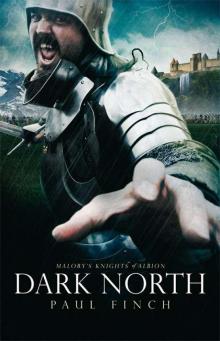 Dark North mkoa-3
Dark North mkoa-3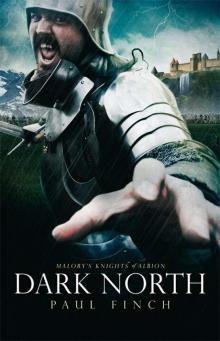 Dark North (Malory's Knights of Albion)
Dark North (Malory's Knights of Albion)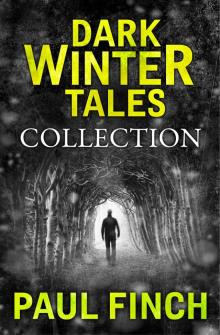 a collection of horror short stories
a collection of horror short stories Sacrifice
Sacrifice Kiss of Death
Kiss of Death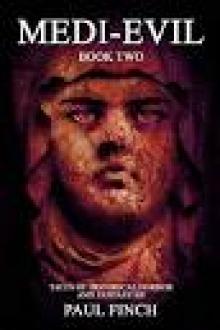 Medi-Evil 2
Medi-Evil 2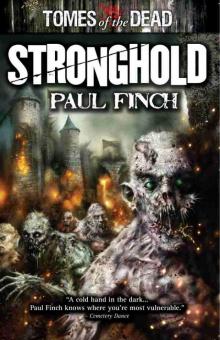 Stronghold
Stronghold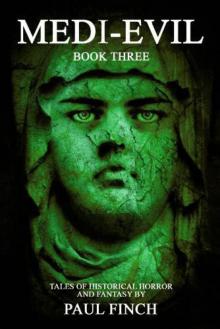 Medi-Evil 3
Medi-Evil 3 Dead Man Walking
Dead Man Walking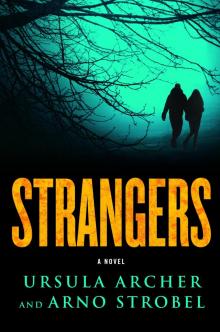 Strangers
Strangers The Killing Club
The Killing Club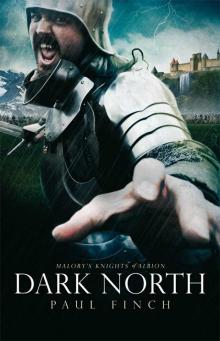 Dark North
Dark North A Wanted Man
A Wanted Man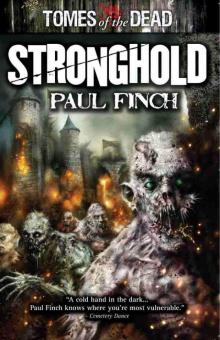 Stronghold (tomes of the dead)
Stronghold (tomes of the dead) Hunted
Hunted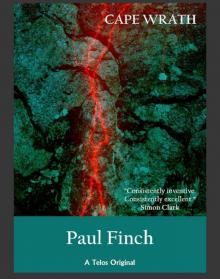 Cape Wrath
Cape Wrath Stalkers
Stalkers The Burning Man
The Burning Man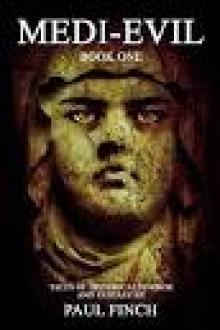 Medi-Evil 1
Medi-Evil 1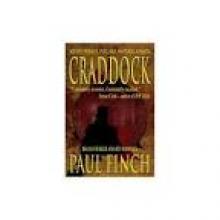 Craddock
Craddock Hunted (Detective Mark Heckenburg Book 5)
Hunted (Detective Mark Heckenburg Book 5)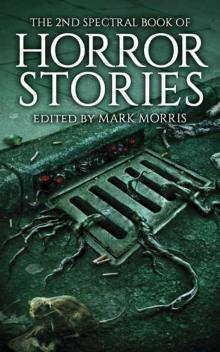 2nd Spectral Book of Horror Stories
2nd Spectral Book of Horror Stories The Chase
The Chase